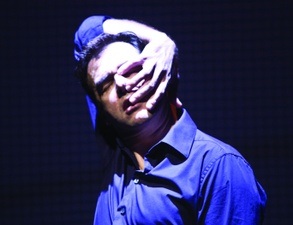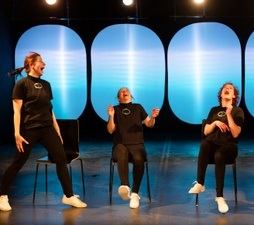Elektra
In the organizer's words:
Doom hangs over the ruling house of Mycenae. Ever since Agamemnon was killed by his wife Clytemnestra, new sacrifices have been made. But there is no peace, especially not for the children. Orest has disappeared, Chrysothemis wants a family of her own, but Elektra has only one thought: revenge for her father. "Time is strange," wrote the poet Hugo von Hofmannsthal around 1900, "and it has strange children: us!". He observed "people who were fractures", who had lost their unity. With irrationality, delusion and "mysteriously excitable nature", the poet poetically describes what Sigmund Freud would soon psychoanalytically record as a sign of the times. The composer Richard Strauss experienced Hofmannsthal's "Elektra" on stage in Berlin in 1905 as a modern antique drama and was fascinated by the expressiveness of the language and the characters. He was particularly interested in the moment when the language reaches the end of its possibilities, when Elektra falls into orgiastic dances of triumph. "Do I not hear the music? It comes from me!" is the decisive sentence for Richard Strauss, who enriches the drama with music that was previously thought impossible and is still unparalleled today. "Elektra" (1909) has the largest orchestra of all of Strauss' operas, the most unheard-of tonal language, the most glaring contrasts and the most daring idea of opera. Strauss gives the three protagonists Elektra, Chrysothemis and Klytämnestra enormous space to unfold their elemental drive energy - against others and against themselves, under the all-dominant motif of Agamemnon. The renowned director Roland Schwab, who staged "Tristan und Isolde" at the 2022 Bayreuth Festival, is working in Cologne for the first time.
This content has been machine translated.









